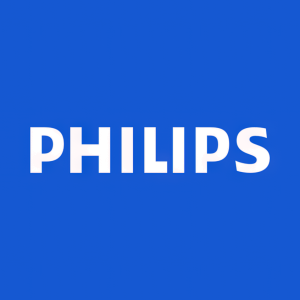Philips survey reveals COVID-19’s negative impact on sleep quality and CPAP use
March 10, 2021
70% of people surveyed have experienced one or more new sleep challenges since the start of the pandemic72% of surveyed sleep apnea patients who discontinued CPAP therapy cited COVID-19 related reasons58% reported a willingness to use telehealth for a sleep related concern, aligning with Philips’ commitment to delivering connected care telehealth support to people at home
Amsterdam, the Netherlands – Royal Philips (NYSE: PHG, AEX: PHIA), a global leader in health technology, today announced the findings of its 6th annual sleep survey in a report titled Seeking Solutions: How COVID-19 Changed Sleep Around the World. Almost a year since the onset of the COVID-19 pandemic, Philips surveyed 13,000 adults in 13 countries to capture attitudes, perceptions, and behaviors around sleep. This year’s survey reveals that, since the beginning of COVID-19,
More people are turning to online resources and telehealth for sleep concerns
While some people may have relied on lifestyle strategies – such as soothing music, meditation or reading – to address their sleep woes, many turned to online searches to learn more about treatments to improve sleep (
“This year’s survey results confirm what we’ve known to be true for a while: with the right solutions, care doesn’t have to be defined by a place, but instead by the needs of the individual and his or her condition,” said Dr. Teofilo Lee-Chiong, MD, Chief Medical Liaison, Sleep & Respiratory Care at Philips. “The tools required to deliver telehealth efficiently and reliably already exist, and the interest from consumers is apparent, particularly in the face of COVID-19. When used properly, sleep telehealth has the potential to enhance efficiency and quality of care, improve health outcomes, empower patients to make informed decisions, and provide equitable healthcare for all. Extending the reach of patient care through technology means we empower providers to confidently guide patients across multiple settings and transitions of care, driving better health outcomes.”
In 2020, Philips furthered the care-from-anywhere approach in the sleep sector by introducing a clinically-validated, low-touch CPAP Mask Selector tool that can be used remotely from the comfort of the patient’s home. As part of Philips’ complete home-based end-to-end solution that includes Alice NightOne home sleep test, Home Delivery and Remote Set-up kit, and therapy adherence virtual services, Philips’ 2D Mask Selector option means patients with sleep issues may not even need to leave home to receive the diagnosis and treatment they need. On the provider side, clinicians can remotely manage their sleep and respiratory patients using Philips Care Orchestrator.
Sleep apnea patients have struggled with CPAP therapy during COVID-19
Sleep apnea continues to impact quality of sleep across the world, with a slight increase reported by those who have been diagnosed with the issue since last year (2020:
Anyone who believes they or a loved one may be at risk for sleep apnea can visit Philips.com/SleepApnea to take an online symptoms quiz, and speak to a healthcare professional right away.
Philips’ latest global sleep survey findings further solidify the company’s commitment to developing clinically-proven solutions to empower those living with sleep apnea and those facing other sleep challenges to take control of their health. For more than 35 years, Philips has been studying sleep from every angle, collecting billions of nights of sleep data to better understand how sleep affects health. Today, Philips’ growing portfolio of sleep solutions collectively address more than
To learn more about the Global Sleep Survey and Philips’ commitment to improving access to sleep technology worldwide, visit Philips.com/WorldSleepDay. To learn more about Philips sleep solutions, visit Philips.com/SmartSleep. To join the conversation about sleep health and Philips’ growing suite of consumer and physician-prescribed sleep solutions, follow @Philips, @PhilipsSleepWellness or @PhilipsResp.
[1] Indicates net “somewhat” or “complete” agreement with the statement
[2] Snoring, Short Sleep, Insomnia, and Obstructive Sleep Apnea
[3] Based on snapshot data from Philips Encore Anywhere database. Percent change between Average daily unique devices connecting to Encore Anywhere by US companies = 1,490,341 as of 12/31/2019 and Average daily unique devices connecting to Encore Anywhere by US companies = 2,005,352 as of 10/1/2020
For further information, please contact:
Meredith Amoroso
Philips Global Press Office
Mobile: +1 724-584-8991
E-mail: meredith.amoroso@philips.com
About Royal Philips
Royal Philips (NYSE: PHG, AEX: PHIA) is a leading health technology company focused on improving people's health and well-being, and enabling better outcomes across the health continuum – from healthy living and prevention, to diagnosis, treatment and home care. Philips leverages advanced technology and deep clinical and consumer insights to deliver integrated solutions. Headquartered in the Netherlands, the company is a leader in diagnostic imaging, image-guided therapy, patient monitoring and health informatics, as well as in consumer health and home care. Philips generated 2019 sales of EUR 19.5 billion and employs approximately 81,000 employees with sales and services in more than 100 countries. News about Philips can be found at www.philips.com/newscenter.
About the Survey
This survey was conducted online by KJT Group, Inc. on behalf of Philips from November 17 – December 7, 2020 among 13,000 adults ages 18 and older in 13 countries (Australia: n=1,000; Brazil: n=1,000; China: n=1,000; France: n=1,000; Germany: n=1,001; India: n=1,000; Italy: n=1,000; Japan: n=1,000; Netherlands: n=1,000; Singapore: n=1,000; South Korea: n=999; United Kingdom: n=1,000; and the U.S.: n=1,000). The survey was web-based and self-administered in the primary language(s) of each country. These were non-probability samples and thus a margin of error cannot be accurately estimated. For complete survey methodology, including weighting variables, please contact Meredith Amoroso at meredith.amoroso@philips.com.
Attachments
- Woman Sleeping
- New Sleep Challenges
- COVID-19 affects sleep apnea patients
- Telehealth for Sleep
- Philips 2021 Global Sleep Survey Results
- Philips 2021 Global Sleep Survey Infographic







